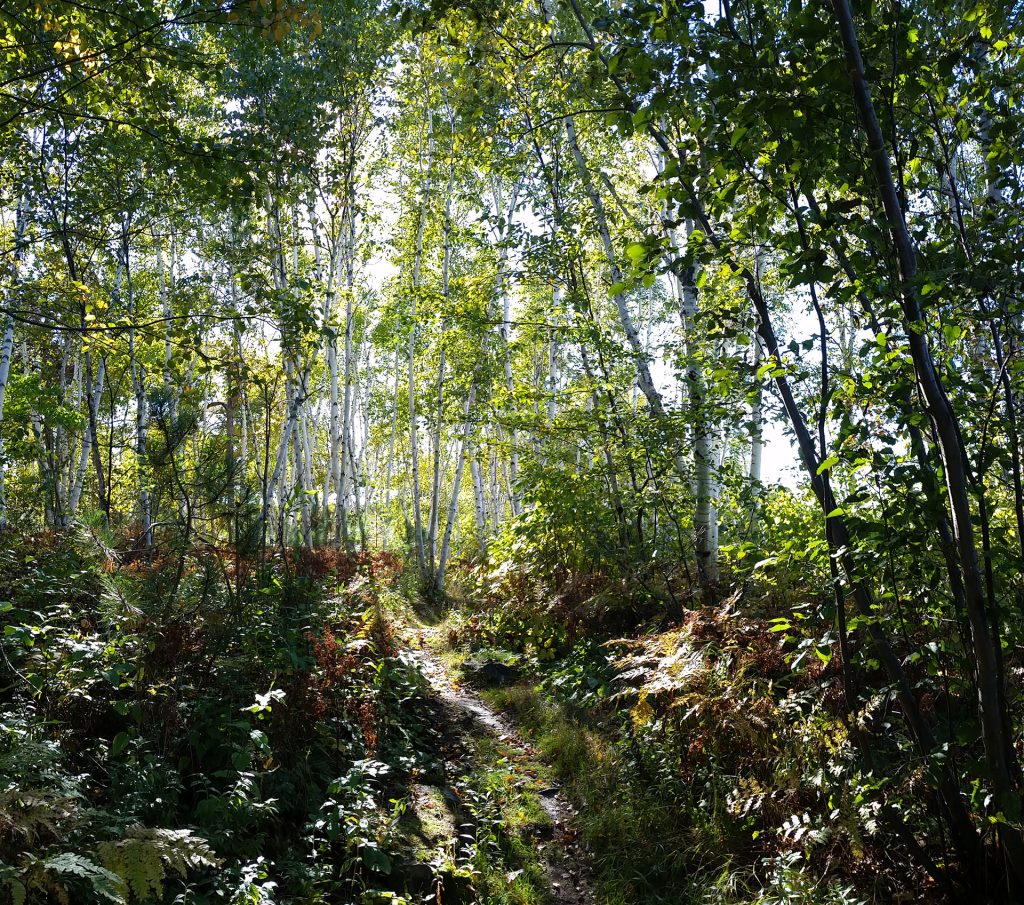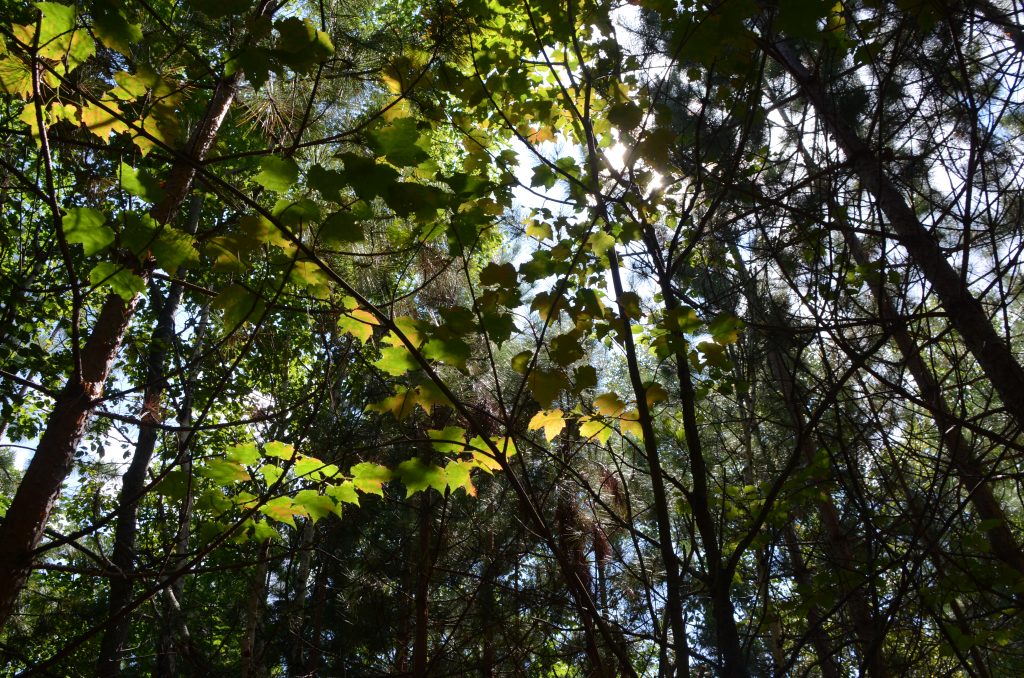What is Forest Therapy?
Forest Therapy is a practice that supports health and wellness through guided immersion in forests and other natural environments to promote the well-being of both people and the land. It is inspired by the Japanese practice of Shinrin-yoku, a term that translates as bathing in the forest.
In the 1980s Shinrin-yoku, or Forest Bathing, was developed in Japan, bringing people into forested areas to enhance health, wellness, and happiness. It is now viewed as an integral part of the Japanese health care system. Over 40 years of research has demonstrated a wide array of both physical and mental health benefits of Forest Bathing.
The core tenet of the Forest Therapy practice is that “the forest is the therapist & the guide opens the door.” Spending time in the forest brings participants the possibility not only to feel the health benefits of being in nature, but also the opportunity to improve their relationships with themselves, the natural world, and with each other.
Forest Therapy is a practice of building relationships. Jacques Cousteau once said, “People will only protect what they love.” A heartfelt relationship with nature naturally leads to a love of nature and a recognition that we are a part of nature, not apart from nature. Developing a meaningful relationship with nature occurs over time and is deepened by returning again and again throughout the natural cycles of the seasons.


What to Expect on a Forest Wellness Walk
Our Forest Wellness Walks are guided by Daniela Stuewer, Conservation Sudbury’s Education Program Manager. Daniela is one of only five people in northern Ontario accredited by the Association of Nature and Forest Therapy Guides and Programs.
A Forest Wellness Walk is a slow and gentle experience in nature. You will be guided through a series of invitations to slow down, to reconnect with your senses, and to experience and deepen your relationship with the forest. These slow, mindful walks are of no longer than one kilometer in length and are appropriate for all physical conditions.
A Forest Wellness Walk will typically last between two and three hours, depending on what participants prefer. Upon request, shorter walks of at least one hour or longer walks may be possible.
Why go on a Forest Wellness Walk?
Scientific studies show that nature and forest time can:
- Regulate blood pressure and decrease stress-related cortisol levels
- Boost immune system functioning
- Accelerate recovery from surgery or illness
- Increase the ability to focus, even in children with ADHD
- Increase energy levels and improve sleep
A Forest Therapy practice can also support individual and community health by:
- Enhancing creativity and innovation
- Improving mood and creating space to allow one to be present in the moment
- Improving confidence and self-esteem
- Strengthening a sense of connection and relationship with other people, and with the natural world
- Encouraging a sense of awe and gratitude
- Bridging the separation between humans and the rest of nature
Types of program and costs described in brochure.


